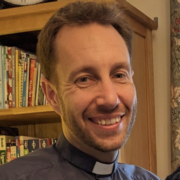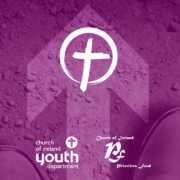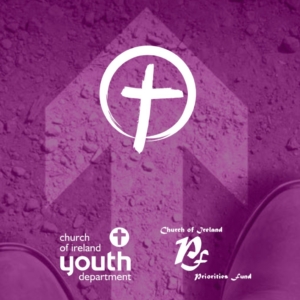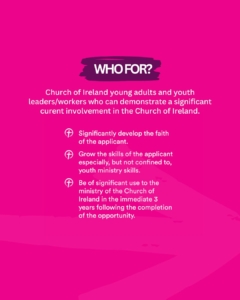Presidential Address to General Synod
Leadership, reconciliation and solidarity highlighted by Primate
Archbishop John McDowell this morning delivered his Presidential Address to the Church of Ireland’s General Synod, meeting this year in Lawlor’s Hotel, Naas, Co. Kildare.
Focusing on leadership, he spoke on the qualities of confidence, humility and resilience – confidence that “people are saved through Christ forever and that to be his friend and his disciple is the greatest privilege in life” … and also “the humility to know that God’s ways are not our ways and to learn the discipline of self-suspicion” that our plans need to be realigned from our own priorities to those of God; and resilience to face the inevitable occasions when things go wrong: “For every resurrection to celebrate, there will be a cross first to carry.”
Archbishop McDowell acknowledged the Church and Society Commission’s work on assisting people most affected by the legacy of the Troubles. Reconciliation “cannot draw a line under the past but it can somehow incorporate or miraculously integrate the past, with all its shadows and injuries, into future life.”
He also spoke on two issues on the theme of social solidarity – immigration and the care of vulnerable people as parliaments consider allowing assisted suicide in Britain and Ireland.
Welcoming the contribution of migrants to diversity (and productivity) in society, the archbishop remarked: “It is not the fault of people coming into this island or anywhere else in the western world that governments have failed to seriously address … immigration in a way that respects treaty obligations and legal norms.”
Approving assisted suicide legislation, as proposed, would, the noted, involve “not just a technical change in medical procedure but would amount to a kind of cultural revolution in the relationship between doctor and patient, and also in the basis on which judgements and decisions about the value of human life are made.” The underfunding of the hospice movement by the State, in his view, “remains a collective disgrace”. The archbishop restated the Church of Ireland’s position that “life in its entirety is a gift from God and that what sustains people even in the most horrible of terminal illness is the certainty of human love and support right to the end.”
In the course of his remarks, Archbishop McDowell also looked forward to the Anglican Consultative Council meeting in Belfast in 2026, and concluded with a quote from the late Pope Francis.
The full text of the Presidential Address is below:
Brothers and sisters in Christ,
I want to begin by thanking the Bishop of Meath and Kildare for hosting this two day in-person meeting of the General Synod in her Diocese and for liaising with the Honorary Secretaries to facilitate this event. As a Synod we are grateful also to the rector and Select Vestry of Naas for hosting the General Synod Eucharist. It was a very fitting way to begin the day in communion with Jesus Christ, the Lord of the Church and with one another in his Body. If I could also take this opportunity to thank the Bishop of Cork for his sermon which comes, as we know with the weight of twenty-six years of experience as a Bishop in the Church of God.
And just while I’m on the subject of the weight of episcopal experience – some of you will remember that last year I asked for your permission to send the best wishes of the Synod to Archbishop Robin Eames who had been gravely ill following a bad fall in London. Not only has Robin made a very full recovery but on St Columba’s Day (9th June) he will celebrate the remarkable achievement of being fifty years in episcopal Orders. The Bishop of Derry and Raphoe will be hosting a celebration in Derry to mark that auspicious occasion when I shall, with your permission, bring the congratulations of the General Synod to Robin and Christine.
Although there is a slot in the Timetable immediately after this Presidential Address for me to welcome our ecumenical guests, I hope the others will not think ill of me if I pass on the sympathy and condolences of the General Synod to my old friend Bishop Denis Nulty on the death of Pope Francis, and congratulations on the election of Pope Leo XIV.
I attended a Requiem Mass in St Peter’s Cathedral in Belfast for the late Pope Francis last week and in the course of the homily Bishop Alan McGuckian went off script to tell the story of how Francis was being driven through Rome and he saw a poster outside either a church or an office block which said in Italian “no whingers allowed” which made the Pope smile when he thought about his daily toil in the Curia. Perhaps the Honorary Secretaries would consider the Constitutional propriety of such a sign for the meetings of the General Synod.
Jeremy Taylor
So, at the beginning of this General Synod I would like to set the mood a little by quoting from a Church of Ireland Bishop of the seventeenth century who earlier had been deprived of his living by Cromwell and had to live in exile for a time at Portmore just outside Lisburn (now there’s something to whinge about all right). Instead, he wrote this:
“I am fallen into the hands of publicans and sequestrators and they have taken everything from me: what now? Let me look about me. That have left me the sun and the moon, fire and water, a loving wife and many friends to pity me and some to relieve me and I can still have my say … they cannot take any my merry countenance, and my cheerful spirits, and a good conscience: they still have left me the providence of God and all the promises of the Gospel, and my religion and my hopes of heaven, and my charity to them too; and still I sleep and I digest, I eat and drink, I read and meditate, I can walk in my neighbours’ pleasant fields, and see the varieties of natural beauties, and delight in all that God delights, that is, in virtue and wisdom, in the whole creation, and in God himself. And he that has so many causes of joy and so great, is very much in love with sorrow and peevishness who loses all these pleasures, and chooses to sit down upon his little handful of thorns.”
Recent Surveys and Leadership
If I could now turn to two important surveys which have been conducted in the Church since we last met as a General Synod. The first is that carried out by the Church of Ireland Youth Department on Youth work within the Church. I know that Simon Henry, our National Youth Officer, will be saying much more about the survey results when the subject comes up for debate on the Synod Agenda. I hope he won’t mind me making a few remarks now. Of all the age groups most seriously affected by the COVID pandemic (apart from the very old) were young people of school age. Psychologists and social scientists are still trying to estimate the extent and depth of the damage done to this group by the pandemic lockdowns, in both educational and personal terms. I too remember at the time asking myself the question whether or not parish-based youth work in all its remarkable variety would ever recover? Or indeed if it was totally gone forever? The fact that there are currently at least 1,860 adult leaders of youth activities in our parishes across Ireland is a clear answer to that question and the number of young people engaged in parish or diocesan based youth activities continues to grow.
As far as I interpret them, these facts are an indication of two things. The first is that the heartbeat of many of our parishes continues to be strong with young and often not-so-young adults using their talents and sacrificing their time to encourage young people in their spiritual journey. These adult leaders act as role models and examples of the truth that to be a disciple of Jesus Christ is a good way (in fact the best way) to lead your life. And young people, especially those from Gen Z, will look above all else to the authenticity of experience rather than to the yada-yada which passes for the discussion of faith and spirituality. For them Christian leadership is an active expression of faith and they have very little time for ecclesiastical jargon. They can see that Christian discipleship is not the line of least resistance in life and their experiences of the ups and downs of their lives so far commends that to them. It has the smell of reality about it. They are all too well aware of the arbitrariness and unfairness of life. They prefer a divine foundation to a polite atmosphere.
And leadership matters, as I think that other survey – the 2023-24 Parish census – will also demonstrate in the long run. And when I say leadership matters, I mean in the sense of the strengthening and deepening of faith, hope and love as well as the recovery of numbers, although that is also important.
The Census would seem to show that we have held our ground over the twelve months since we last undertook the exercise. It will be at least another two to three years before we have sufficient comparable data to plot trends but I think we can now at least say what the datum –the baseline – looks like. Of course, it varies from place to place and it does look like rural and county-town religion have held up much better than inner city and suburban religion. We know too that no more than around 20% of people who see themselves as Church of Ireland attend worship regularly. Although that is not the gold standard by which faithfulness to Jesus Christ and his teachings is to be measured, it is of great significance. We all know people who for one reason or another find the fellowship of a parish or congregation impossible to live with; but for the great majority of churchgoers it is impossible to live without.
But to make inroads into even the Church of Ireland shortfall, never mind wider evangelization, we need leadership in parishes and in the Church in general that has three qualities: confidence, humility and resilience. First, confidence in the Gospel that we are heralds of and witnesses to. Confidence that, as the Ordinal tells us, people are saved through Christ for ever and that to be his friend and his disciple is the greatest privilege in life. Of course, we will fail as a Christian tradition if we lose that as our primary focus. Yet we need also the humility to know that God’s ways are not our ways and to learn the discipline of self-suspicion: that probably 75% of my plans are just that – my plans and not God’s plans. And because of that, especially as leaders, we need resilience. To face the inevitable occasions when things go wrong; when the Kingdom of God begins to feel like the kingdom of this world. But then why should we expect to succeed in a way that Our Lord and the apostle Paul did not? For every resurrection to celebrate, there will be a cross first to carry.
Leadership and Authority
So, a word or two about leadership and authority. Authority within Anglicanism is often described as “diffused” and therefore difficult to pin down. And it can indeed result in all sorts of evasions and prevarications, when what is needed is leadership. However, authority and leadership are closely related. A leader at any level is someone who has been “authorised” to do certain things. In the Church of Jesus Christ to be “authorised” is to know that the Lord stands with you as you preach or witness or teach or lead in any way; you do so in his Name.
My own experience of both secular and church roles has convinced me that leadership at any level cannot be delegated. Of course, certain functions can be devolved to specialists or people with specific gifts. And leadership can also be exercised collaboratively, and in the Church of Ireland it often is at all levels: a rector with his or her Select Vestry; a bishop with his or her Diocesan Council; bishops, clergy and lay people in Diocesan Synods and in the Standing Committee, and the Representative Body and ultimately of course in this General Synod. But always there needs to be a co-ordinating mind, a focus of unity and a Shepherd’s hand; and in the Anglican understanding of authority and leadership that lies with the diocesan Bishop. Each of us who are of that Order need your prayers for those gifts of confidence in the Gospel, humility in our exercise of leadership, and resilience in the face of frustrations and fragility.
Reconciliation
As you may remember when I presided at my first General Synod, I said that reconciliation would be the constant theme of my Primacy. I also said that reconciliation can take very different forms in different circumstances. Yet at its heart it is always the putting right of broken relationships. For me, at least, it was interesting and encouraging to hear An Taoiseach speak about the primacy of reconciliation across this island in his most recent Shared Island speech, as something that must be prior to any dramatic political developments. You will each have your own views on that sentiment. Yet whatever we may make of it as a political statement, as disciples of Jesus Christ, we cannot side-step our vocation to be peacemakers and reconcilers in the many and varied circumstances where we find ourselves.
Reconciliation is the exchange of the bread of life for the bread of truth. It is a way in which those whose humanity has been damaged in any way can tell their story and have their story listened to. It cannot draw a line under the past but it can somehow incorporate or miraculously integrate the past, with all its shadows and injuries, into future life.
One of the great obstacles to a reconciled society on this island (and particularly in Northern Ireland) is the huge and unresolved physical and psychological trauma that is being carried, usually unseen, as a legacy of the Troubles. It is now inter-generational and has left thousands of people with the unanswered question, “Why does what happened to me or to a person whom I loved not count”?
And that is why I am particularly grateful that the much-strengthened Church and Society Commission chaired by the Archbishop of Dublin has responded to a motion passed at the General Synod in 2023 calling for a pastoral resources to engage with this issue. The response was coordinated by a sub-group of CASC led by Zephryn Patton and has three strands. The first, which is available in the exhibitors’ gallery, is a Troubles legacy resource leaflet intended as a sign-posting tool to help guide people to supports and services that offer assistance to people affected, directly and indirectly, by the Troubles. The second is a liturgy developed with the Liturgical Advisory Committee which addresses the subject of trauma. Thirdly, the Commission has liaised with the Revd Dr William Olhausen and the Continuing Ministerial Education Programme at CITI to provide training for curates in the area of trauma-informed pastoral care. It is hoped that these modest resources will further assist in the care of many people with whom clergy and pastoral workers of every kind have been travelling for decades.
Ordained Ministry
As you will know, at any one time there are around 80-90 incumbencies vacant in the Church of Ireland, which equates to about 20% of stipendiary positions. Each year, we have hoped and prayed for an increase in the number of men and women being sent by their bishops to the Selection Conference for stipendiary ministry. The numbers have increased slightly over the past few years but to nowhere near the extent needed to fill the gap.
However, increasing numbers of men and women have heard and responded to the call of God to Ordained Local Ministry. There is no doubt in my mind, and in the mind of the House of Bishops, that this is a movement of the Holy Spirit in response to our prayers for an increase in Ordained ministry. It may not have taken the form which we had anticipated (perhaps because God’s ways are not our ways) but the fact that now over sixty men and women have either been ordained or are in training to be ordained in this particular local expression of priestly ministry is a self-authenticating truth, and we thank God for it.
Over the past year or more those involved in the counsels of the Church, particularly the House of Bishops, have been working hard to ensure that Ordained Local Ministry is integrated fully into the canonical structures of the Church of Ireland. The House of Bishops has further work to do on the future mixed ecology of Ordained ministry and has plans in hand to do so.
Before leaving the subject (though not wishing to trespass too far into the territory of those who will be speaking to the Report of the Representative Body), I must express my own thanks for the generous subsidy now being provided by the Stipends Committee and the Allocations Committee to support the appointment of curates.
Solidarity
On broader societal developments I would like to take this opportunity to comment on two issues which could come under the heading of ‘social solidarity’.
Perhaps no issue has dominated world and domestic politics more than that of immigration and how it can be responsibly and humanely managed. It is not the fault of people coming into this island or anywhere else in the western world that governments have failed to seriously address this dilemma of immigration in a way that respects treaty obligations and legal norms. In the meantime significant numbers of people from the widest variety of countries have come to Ireland, North and South, very often with the intention of making this their home. By and large the response of governments has been to bundle them into what are effectively detention centres or to scatter them to far flung corners of the country.
Where immigrants of any sort have been able to get a toehold in communities, often by their own unaided efforts, they have contributed not just to the diversity but also to the productivity of those communities and society at large – they have brought a richness, if you will. A very large proportion of immigrants, particularly from Africa, come from strongly Christianised societies. The Church has been part of their daily lives. They derive great strength from their faith and they bring great joy and vibrancy to their expression of it. Many have come from Anglican backgrounds, yet for whatever reason often find a different spiritual home here in Ireland. Somehow or another we have let them down and have weakened our own witness to the Catholicity of the Church in doing so. We can put that right over time but in the meantime we have a Christian duty, indeed a vocation, to maintain active solidarity with people (believers and unbelievers alike) who have become the subject of dehumanising, and sometimes violent, language and often intimidating and discriminatory behaviour.
I would like to thank the members of the Primate’s Reference Group on Ethnic Inclusion for their enthusiasm and hard work in raising awareness of this issue and keeping this vocation on our agenda.
As I have said often, Jesus Christ was the first person ever to conceive of the divided races as a unity and I think (although the scholars do not) that that is one of the reasons why he had a consciousness of being both the Son of Man as well as the Son of God. And it was why he was convinced of that almost incredible vocation, that he could carry on his shoulders the burden of the sins of the whole world. Of every person who ever lived or ever would live, joined to him as the head and rising on the third day as a kingdom in his hand. He was indeed “a lover for who the love of the whole world was too small”. It is our vocation to stand in solidarity with any person whose circumstances or government make it hard to live fully human lives, whatever their first language, ethnicity or religion.
Another big shift in societal outlook and an area which CASC has been monitoring is around the question of assisted dying and/or assisted suicide. What once seemed a rather remote prospect is now looming large with a vote in the Oireachtas in support of a report favouring assisted dying and with the slow progress of a Private Member’s Bill in the House of Commons. I appreciate that there will be a range of views held by Church of Ireland people on this subject, very often informed by personal and family experiences. However, as the CASC contribution to the Report of the Standing Committee rightly points out, Church of Ireland opposition to any such legislation has been consistent.
Speaking only for myself, I cannot help but think that any legislation along the lines outlined in either the report voted on in the Oireachtas or in the Bill passing through Westminster would involve not just a technical change in medical procedure but would amount to a kind of cultural revolution in the relationship between doctor and patient, and also in the basis on which judgements and decisions about the value of human life are made. Death is one of the great facts of our existence but it is a social fact as well as an individual one. Wide-ranging and perhaps long lasting unintended consequences of legislating for assisted dying as though it were absolutely a personal matter seem to me to be unavoidable.
In the case of the Church of Ireland in general I think we would need a great deal more persuading to depart from our stated position that life in its entirety is a gift from God and that what sustains people even in the most horrible of terminal illness is the certainty of human love and support right to the end. In that sense, it remains a collective disgrace that the hospice movement remains pitifully underfunded by the State and so heavily dependent on fundraising activities.
ACC-19
One event which I feel I should let you know about although it will not be taking place until a month after next years General Synod is the meeting of the Anglican Consultative Council in Belfast in late June and early July 2026. The ACC is a body of around 180 representatives – lay, clerical and episcopal – which meets once every three years and is one of the Instruments of Communion within Anglicanism. It is a deliberative and not a legislative body but, because of the presence of lay representatives has a special place within those Instruments.
The agenda for the meeting has not been fully mapped out yet, but one of the most significant items will be a discussion on what have become known rather grandly as The Nairobi-Cairo Proposals. These proposals include a much needed and long-awaited update on the definition of Anglicanism, which has not been authoritatively revised since the Lambeth Conference of 1930. The new definition has been worked on by a body called the Inter Anglican Standing Committee on Faith and Order (IASCUFO) which has an advisory and research role on such matters within the Communion and have been discussed by the Primates Meeting and by the Standing Committee of the Communion, of which I am a member.
It is a modest but significant redefinition and if the resolutions accompanying it at ACC-19 are adopted it will then go out to each Province for further discussion and debate, just as the 1930 Lambeth Conference Resolution did.
Apart from the Nairobi-Cairo Proposals and the other formal business of the Council, it will also provide an opportunity for Anglicans from different parts of the world to learn more about the Church of Ireland and to worship with us. I look forward to bringing you more news on the event at next year’s General Synod, if the Lord spares me.
Our future
I want to end now with some words which in many ways sum up everything that I have been trying to say about the vocation of the Church of Ireland and its future, and also about our role as heralds, witnesses and living examples of resurrection life in all its fullness, from beginning to end, and for every human being. Some words by a well-known bishop:
“It is impossible to persevere in ardent evangelisation unless we are convinced from personal experience that it is not the same thing to have known Jesus as not to have known him, not the same thing to walk with him as to walk blindly, not the same thing to hear his word and not to have heard it, and not the same thing to contemplate him, to worship him, to find our peace in him as not to. It is not the same thing to try to build the world with his Gospel as to try to do so by our own lights. We know well that with Jesus life becomes richer and that with him it is easier to find meaning in everything. A true disciple knows that Jesus walks with him, breathes with him, works with him…a person who is not in love with Jesus will convince nobody”.
I pray that those simple yet profound words of Pope Francis will be in our minds as we debate the Bills and Motions and Reports before us and that the Lord of the Church will be with us in the quiet power of his Spirit in all that we do and say.

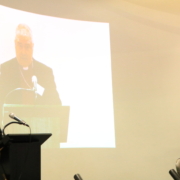


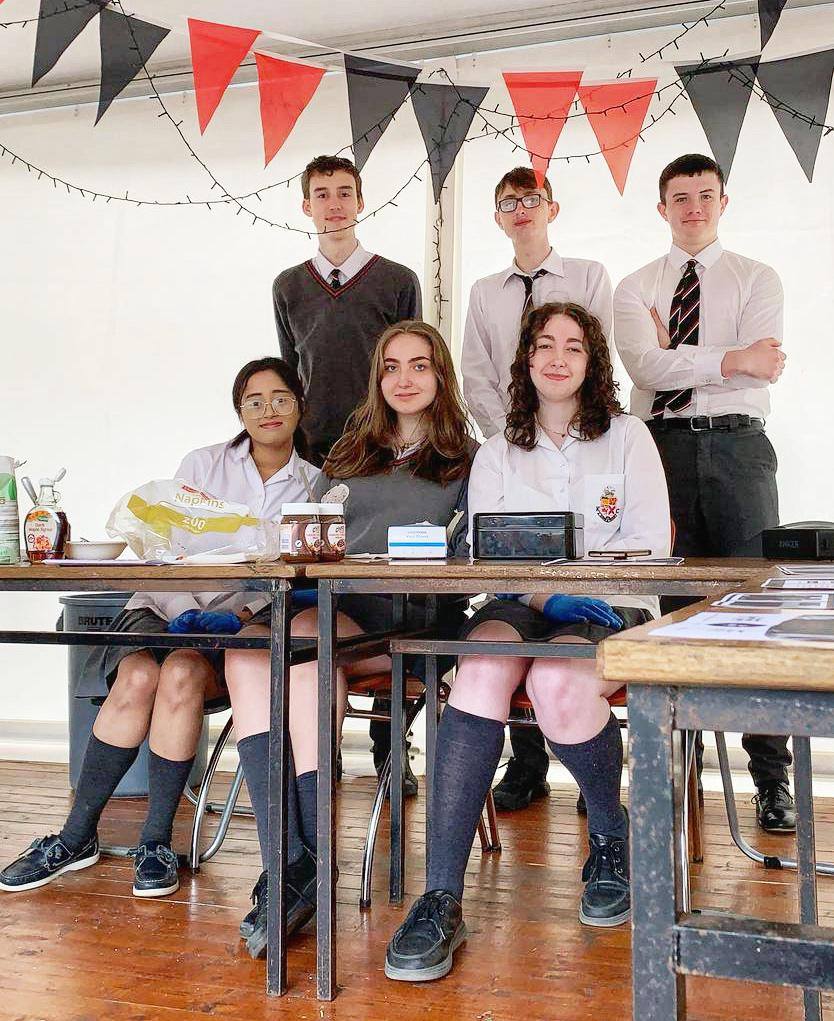 Great to see schools getting involved with Pancakes & Prayer! Thanks to Darragh and the guys at Kilkenny College Christian Union for their enthusiasm and fundraising efforts.
Great to see schools getting involved with Pancakes & Prayer! Thanks to Darragh and the guys at Kilkenny College Christian Union for their enthusiasm and fundraising efforts.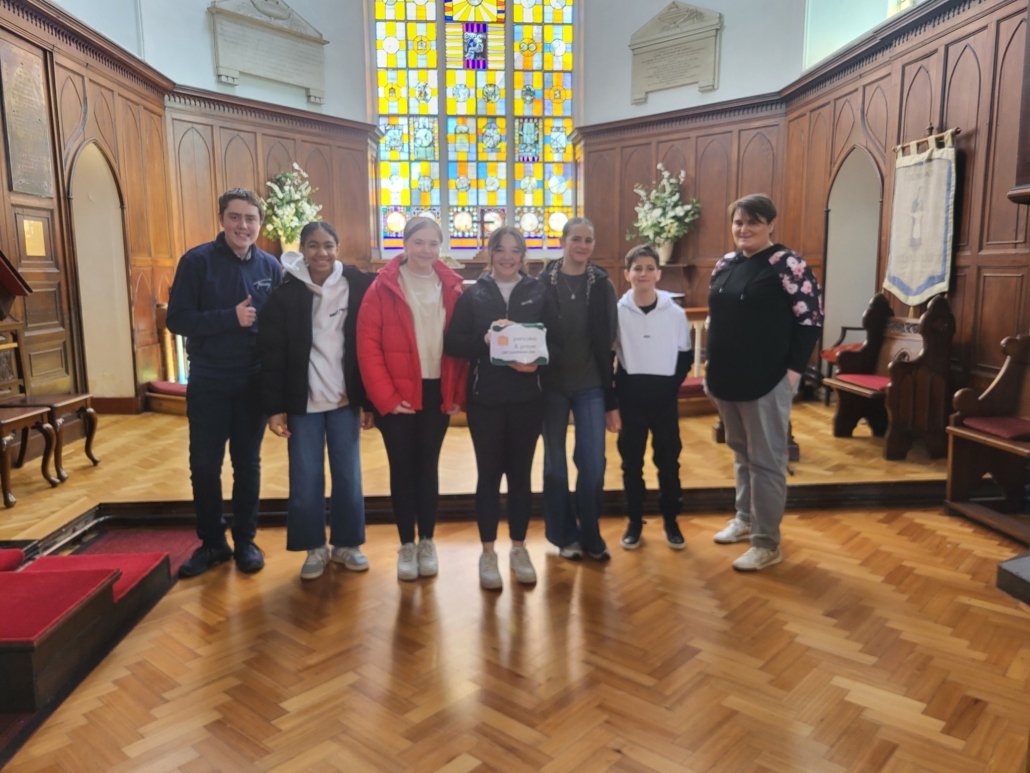

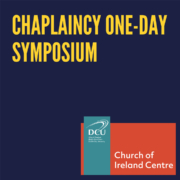
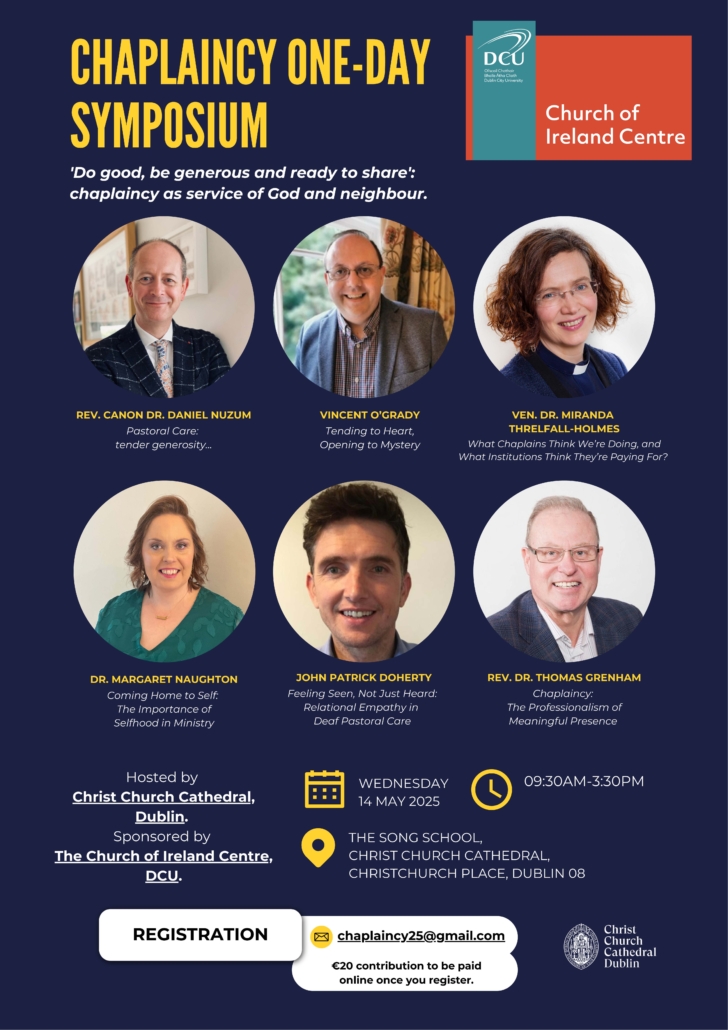
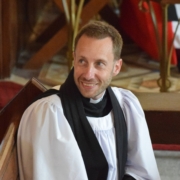
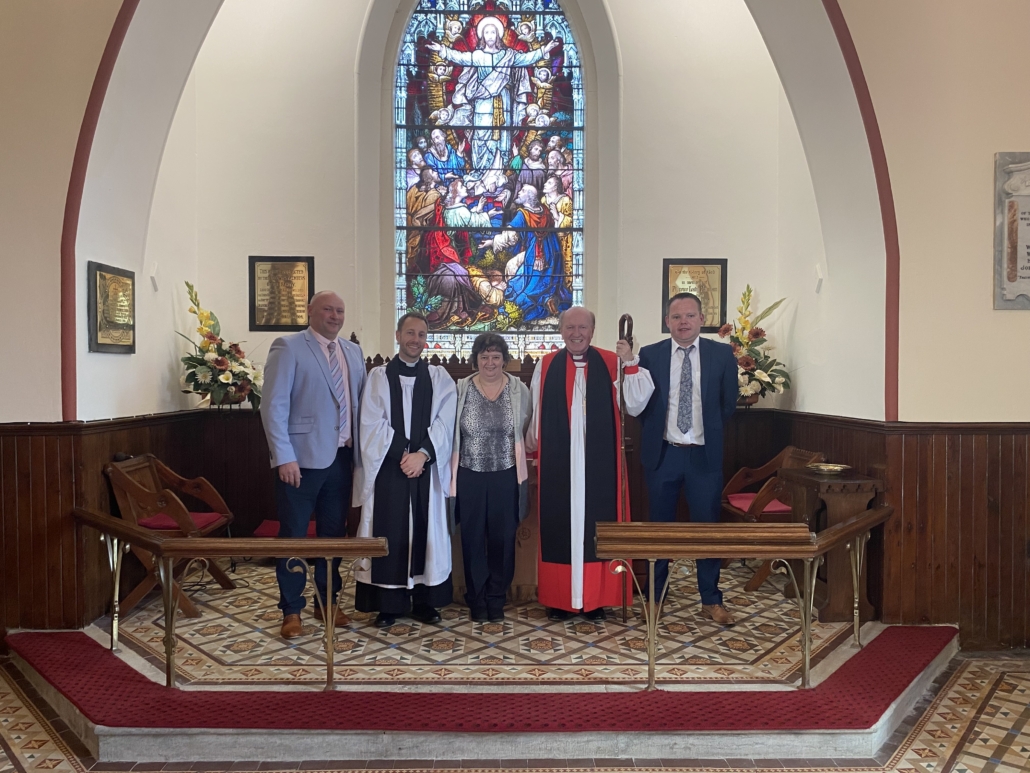
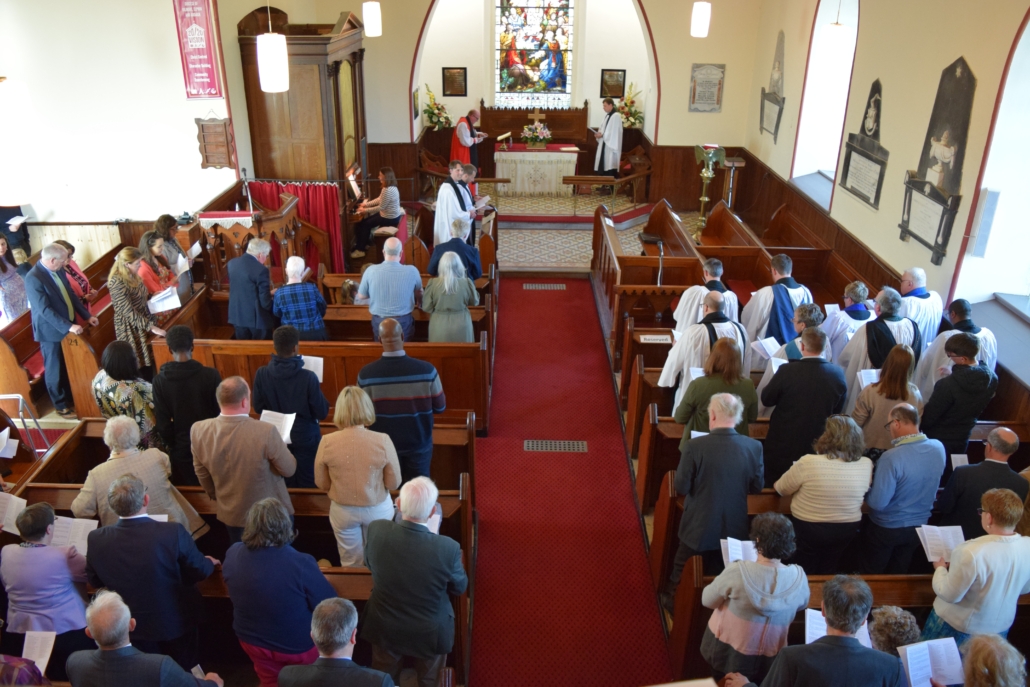
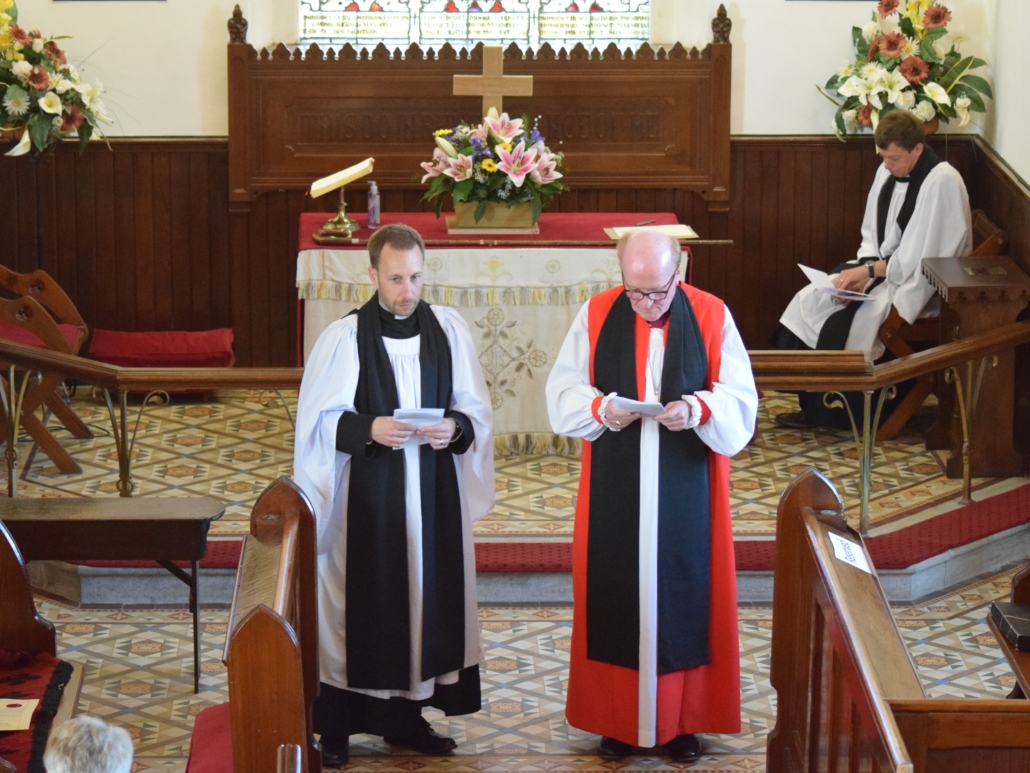


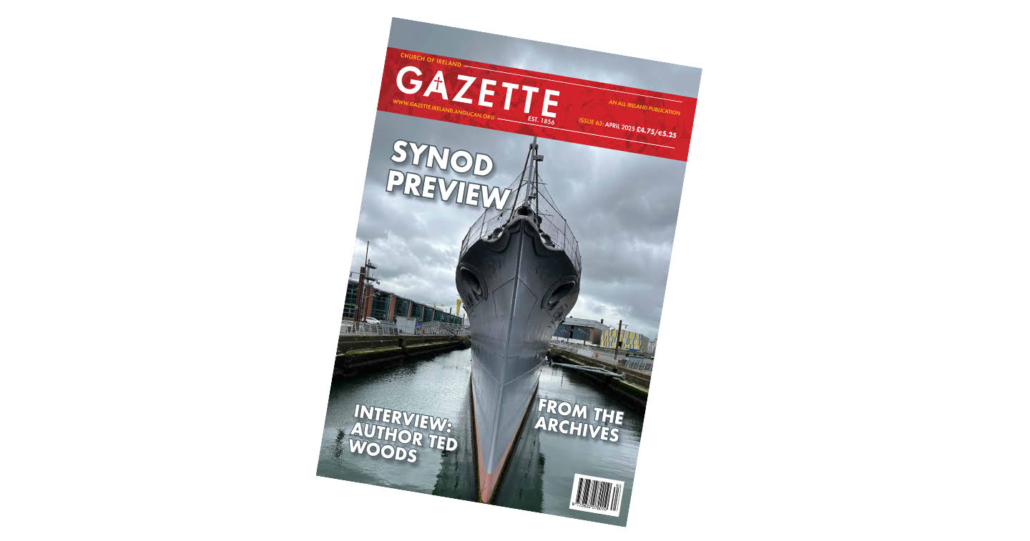 Our April 2025 issue is out now, and full of great news and features from across the island.
Our April 2025 issue is out now, and full of great news and features from across the island.
